Nutritional yeast is a common health food product known for its cheesy flavor, but is nutritional yeast gluten-free? Learn more about this ingredient, whether or not it is gluten-free, and if it is safe to consume on a gluten-free diet for those with celiac disease or gluten intolerance.
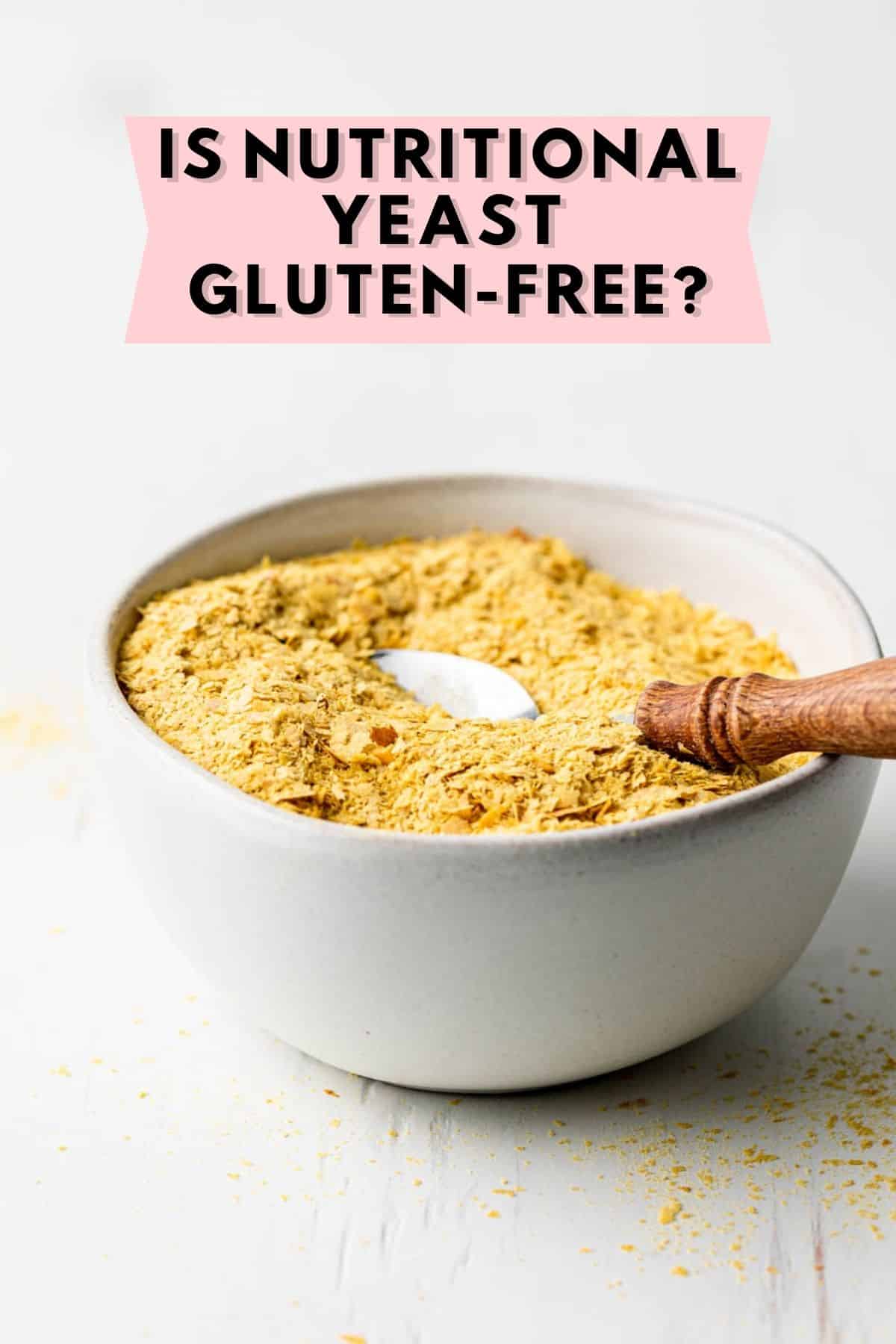
💌 Want to Save This?
Unsubsribe at any time.
Jump to:
- Is Nutritional Yeast Gluten-Free?
- Ingredients in Nutritional Yeast
- What Is Nutritional Yeast?
- Is Nutritional Yeast Healthy?
- How is Nutritional Yeast Made?
- Still Confused About Yeast and Gluten?
- Popular Brands of Nutritional Yeast
- Nutritional Yeast Recipes
- More 'Is It Gluten-Free?' Articles
- Comments and Ratings
Is Nutritional Yeast Gluten-Free?
Nutritional yeast is naturally gluten-free. It is made from deactivated yeast, which is a fungus, not a gluten-containing grain. Nutritional yeast is generally safe to eat for someone with celiac disease or another gluten-related disorder.
If you are highly sensitive to gluten, it is important to note that even if a product is typically considered gluten-free, you should always check product labels and look for allergen statements.
While nutritional yeast is usually gluten-free, a manufacturer may declare wheat as an allergen if the product happens to be processed in a facility where wheat is present. This can only be determined by examining the specific product packaging.
Ingredients in Nutritional Yeast
Nutritional yeast is essentially inactive dry yeast that is often fortified with vitamins during the growing process. For example, take a look at the ingredients listed in Bragg Nutritional Yeast:
Dried Yeast, Niacin, Pyridoxine Hydrochloride (Vitamin B6), Thiamin Hydrochloride (Vitamin B1), Riboflavin (Vitamin B2), Folic Acid (Vitamin B9), Cyanocobalamin (Vitamin B12)
What Is Nutritional Yeast?
Nutritional yeast is a deactivated form of the yeast, Saccharomyces cerevisiae, which is the same species of yeast that makes baker’s or brewer’s yeast. Nutritional Yeast is most often used as a dietary supplement due to its many nutritional benefits or in plant-based and vegan cooking, because it is useful for adding an umami or savory flavor to a variety of dishes.
The small yellow flakes often come in a shaker container and have a distinct earthy smell. The product can be used as a healthy seasoning for popcorn, a vegan substitute to make “cheesy” sauces and dips, or for adding nutty flavor to salads, roasted vegetables, and more.
Affectionately dubbed “nooch” as a shortened form of the word nutrition, nutritional yeast gets its name from the nutritional benefits it provides, including protein, fiber, essential vitamins, minerals, and antioxidants.
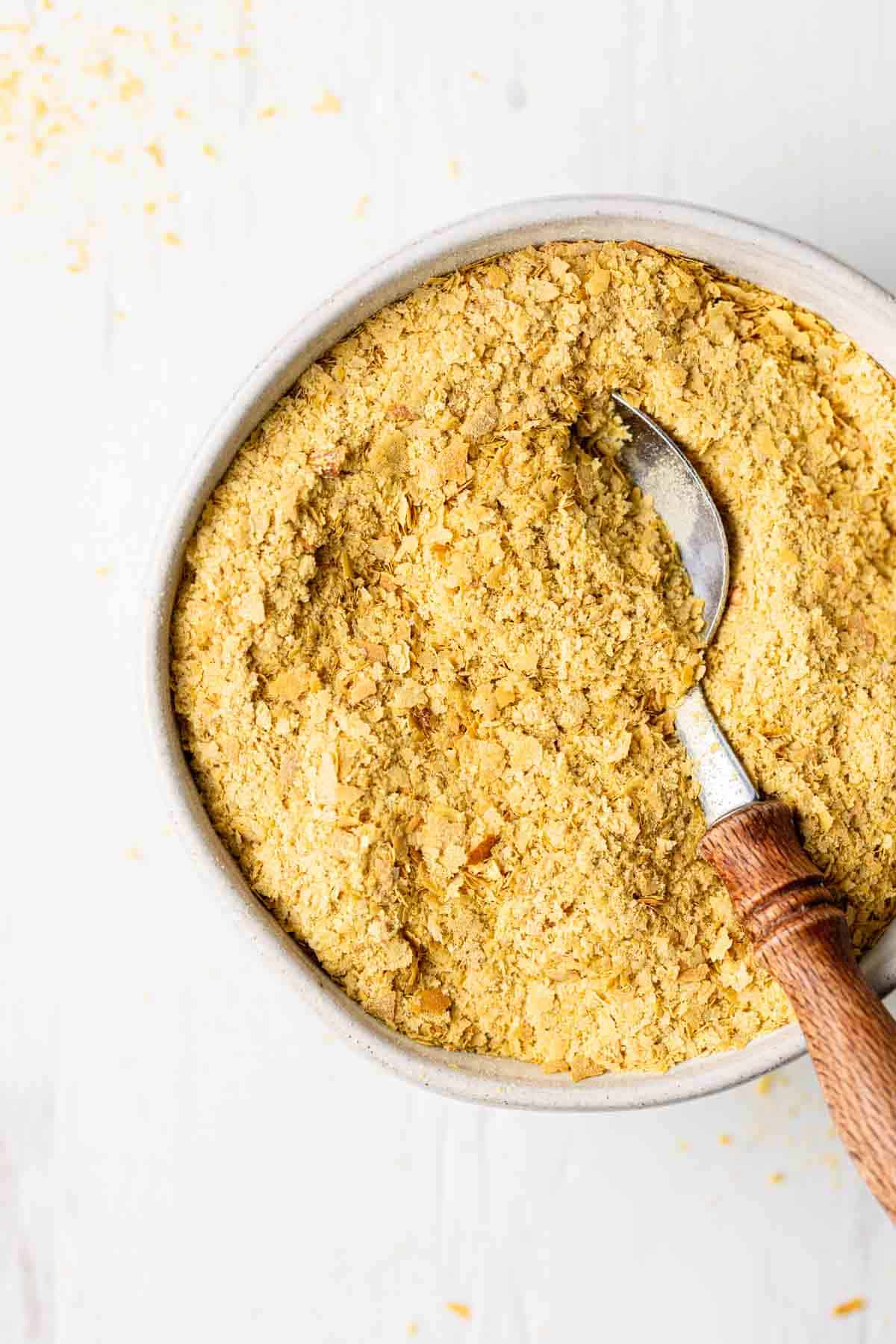
Is Nutritional Yeast Healthy?
According to WebMD, the benefits of nutritional yeast are many. It is a nutrient dense food that is a great source of high-quality protein, vitamins, minerals, and antioxidants. It contains all nine essential amino acids, making it a complete protein, which is helpful for those on a plant-based diet.
Just 2 Tablespoons of nutritional yeast contains 8 grams of protein, 4 grams of fiber, and is a good source of B vitamins, potassium, and zinc. Fortified nutritional yeast is also a good source of vitamin B12 and folate.
The fiber in nutritional yeast is beta-glucan, which may help reduce cholesterol levels and strengthen your immune system.
How is Nutritional Yeast Made?
To produce nutritional yeast, S. cerevisiae yeast cells are grown in a carbohydrate rich solution, typically molasses from sugarcane or sugar beets. This yeast substance is then enriched with vitamins. Finally, the yeast is dried with heat, rolled into flakes, and then packaged for use.
This drying process not only pasteurizes the product, but also deactivates the yeast, which means nutritional yeast cannot be used for making bread or beer.
Still Confused About Yeast and Gluten?
If you've been gluten-free for a bit, you may have heard or think that yeast is not gluten-free. While it is true that not all yeast is gluten-free, most of it is. The terms used to define each type of yeast can lead to some confusion, so let's quickly break it down here.
Most yeast is gluten-free. This includes:
- Nutritional Yeast
- Baker's yeast
- Active dry yeast
- Instant yeast: Except for one specific product, Red Star Platinum Yeast, which contains wheat.
The types of yeast that may not be gluten-free are:
- Brewer's yeast
- Spent brewer's yeast
- Yeast extract
- Autolyzed yeast extract
Brewer's yeast and spent brewer's yeast are not gluten-free unless specified on the product label. This is because these types of yeast are a byproduct of the beer brewing process, which means it likely contains gluten from the barley used to make beer.
Autolyzed yeast extract and yeast extract may also contain gluten from barley and should be avoided unless the product is labeled gluten-free.
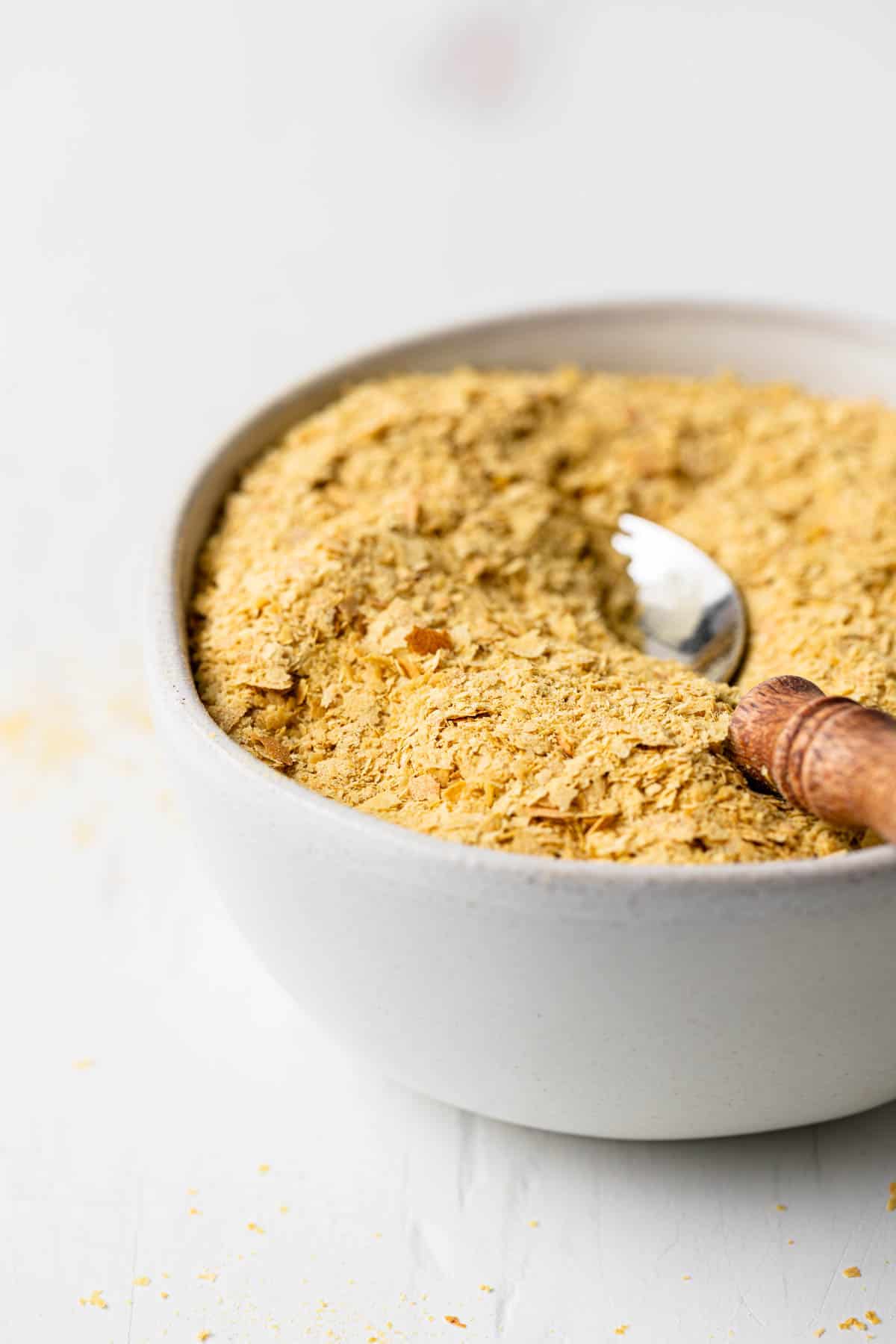
Popular Brands of Nutritional Yeast
Find nutritional yeast in most grocery stores, usually in the natural foods, health foods, or baking aisle. Look for these popular brands:
- Bragg Premium Nutritional Yeast Seasoning
- Anthony's Premium Nutritional Yeast Flakes
- Bob's Red Mill Nutritional Yeast
- Red Star Savory Nutritional Yeast Flakes
Nutritional Yeast Recipes
If you're new to cooking with nutritional yeast, here are a few gluten-free recipes to enjoy featuring this nutrient-dense food! These simple recipes are a great introduction to this versatile ingredient.
- Seasoned Pretzels
- "Cheesy" Garlic Bread
- Kale Chips
- Gluten-Free and Vegan Mac & Cheese
- Creamy Nutritional Yeast Salad Dressing
- Nooch Crackers
- Nooch Popcorn
More 'Is It Gluten-Free?' Articles
I hope you enjoyed learning about nutritional yeast in this article. Please take a look at some more ingredient focused articles before you go! There's always something new to learn on this gluten-free diet!
Gain access to our FREE exclusive mini-series:
Gluten-Free Baking and Lessons Learned!
Plus, be the first to know about new recipes and exciting announcements!
📩 Sign up for the Mini-Series Here! 📩
Disclaimer: The information in this article is the personal opinion of the author and for educational purposes only. This is not medical or nutritional advice. Please consult a doctor or medical professional before making changes to your diet or regarding any health related decisions. Ingredient information was accurate at the time of posting but should always be verified by the consumer by checking the product ingredient label for the most up to date information.
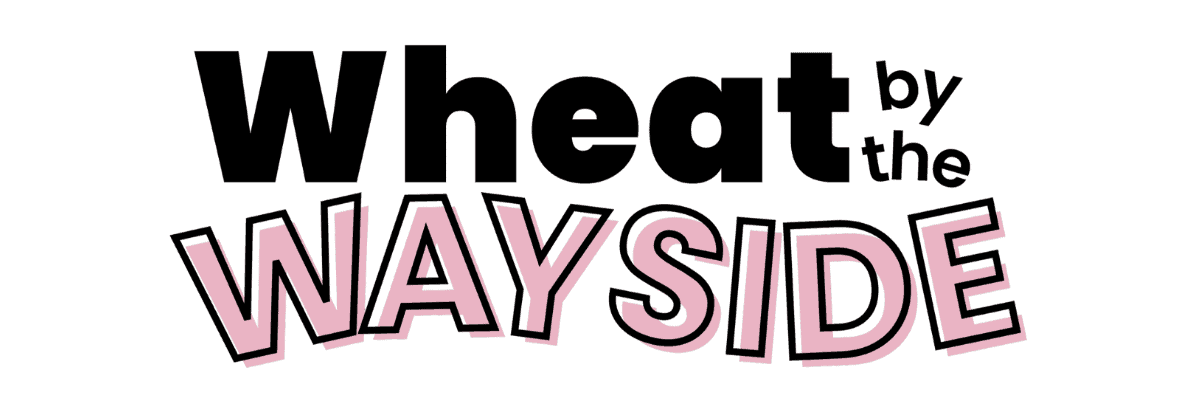
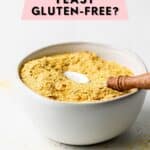
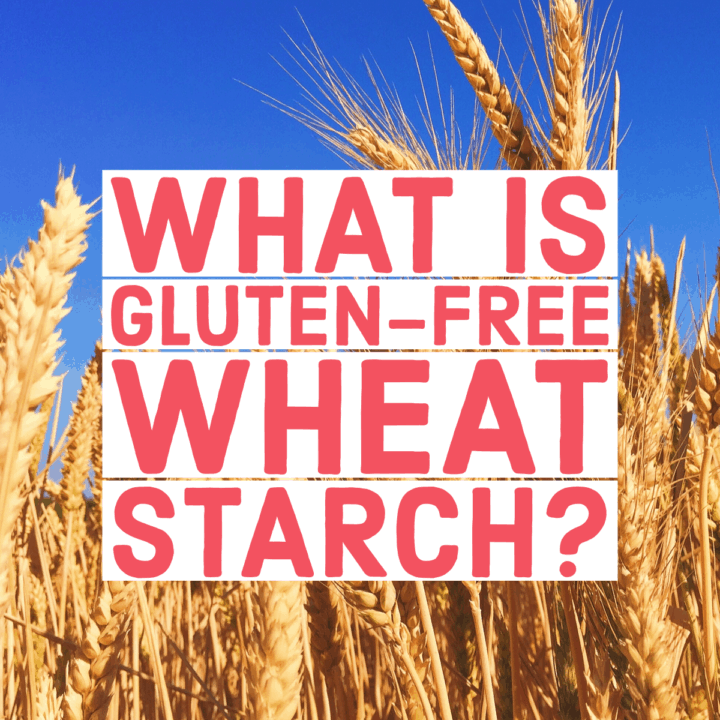
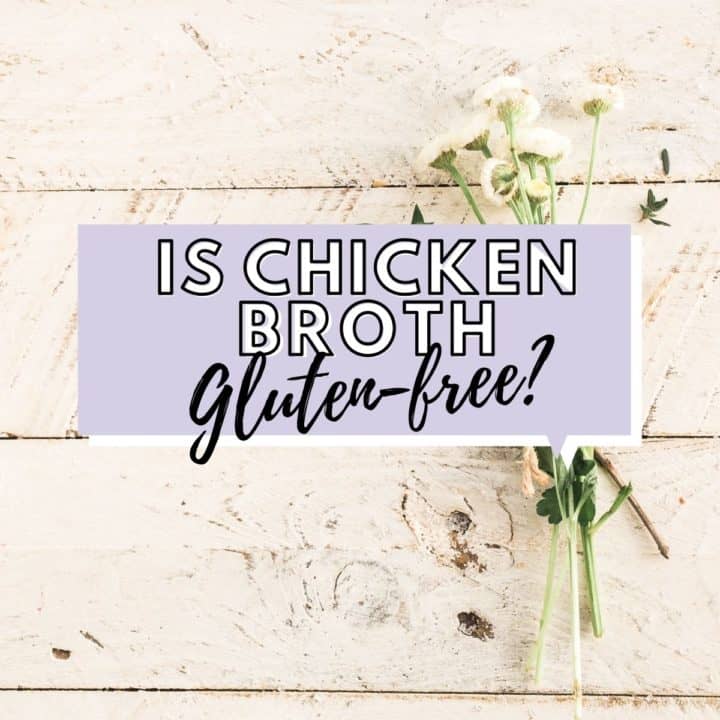

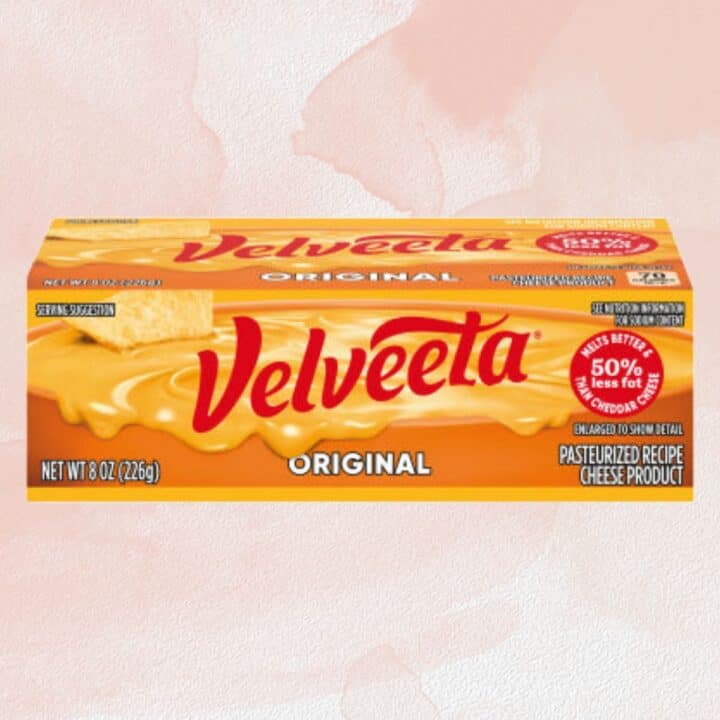
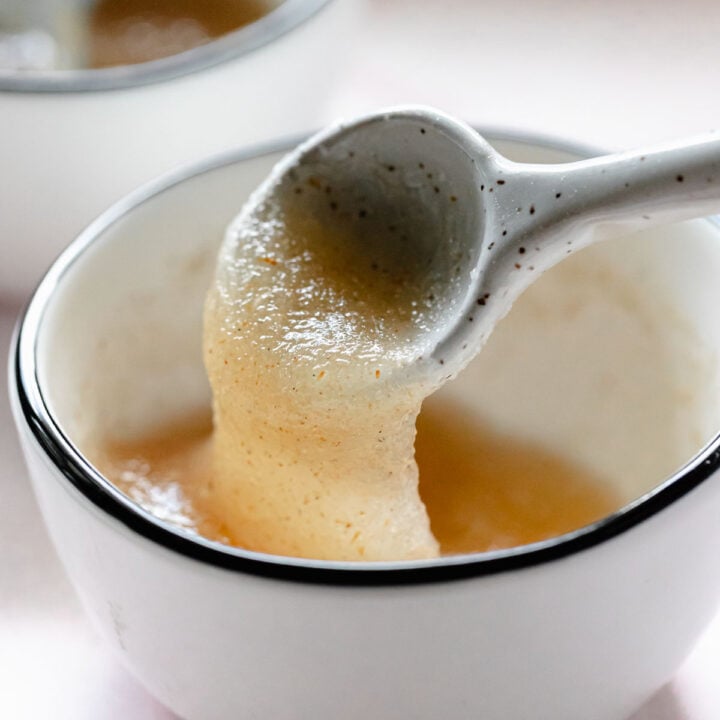
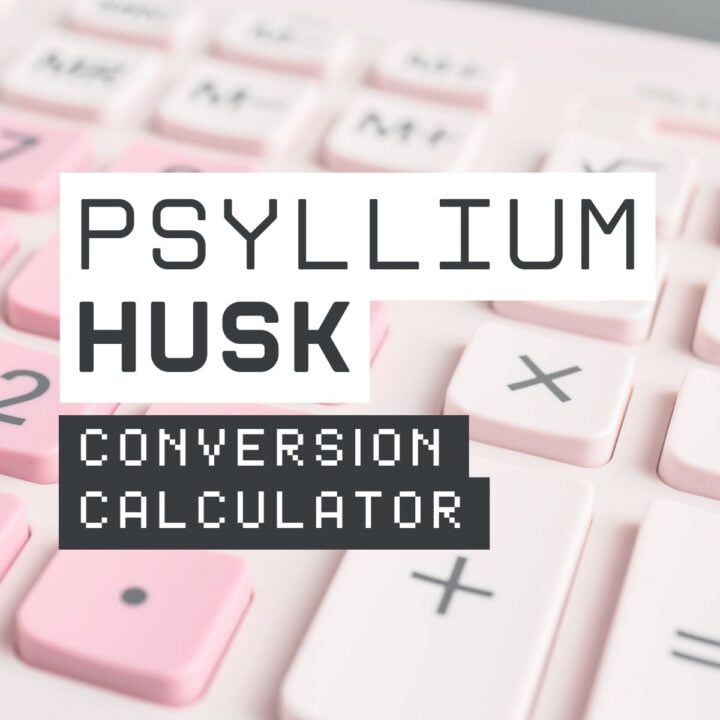
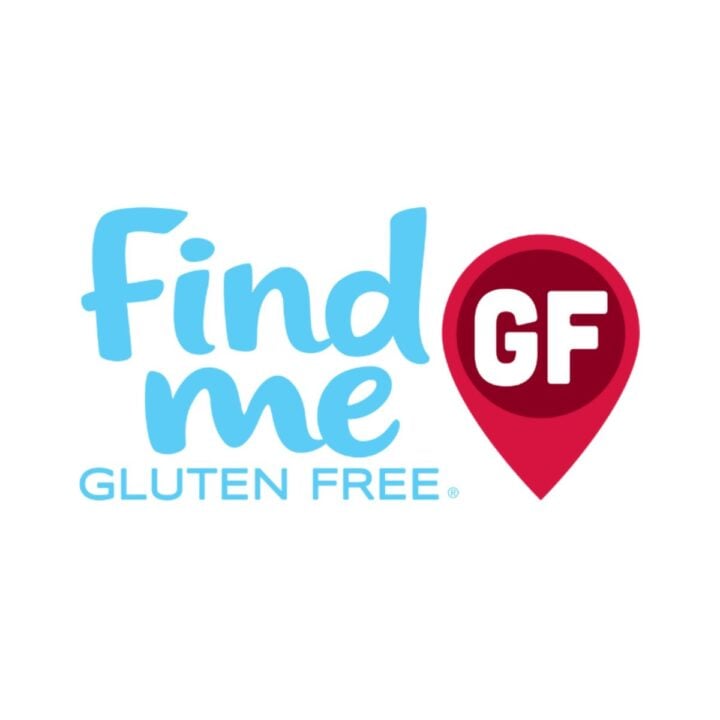

Comments
No Comments